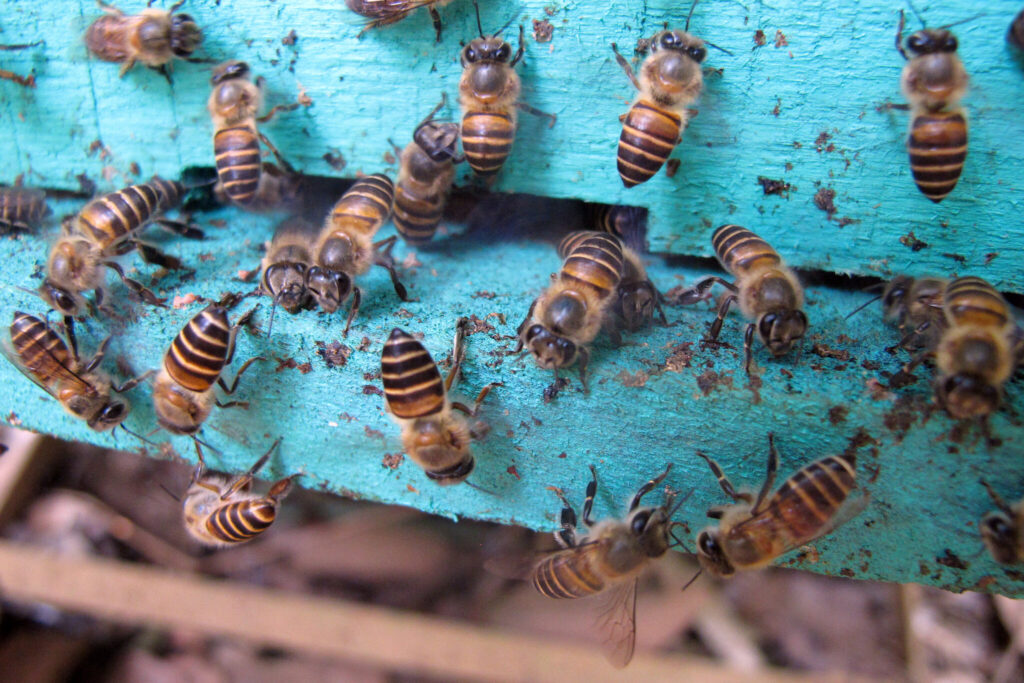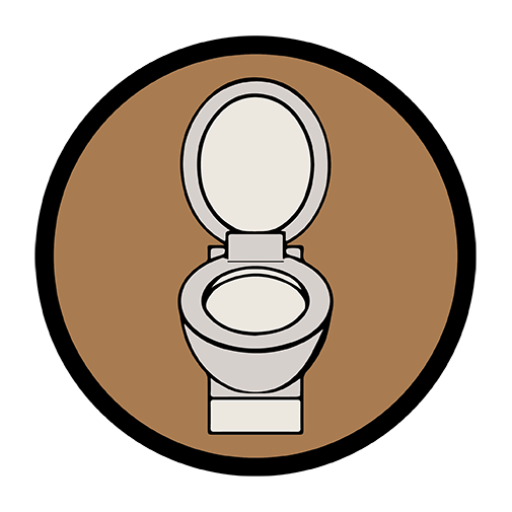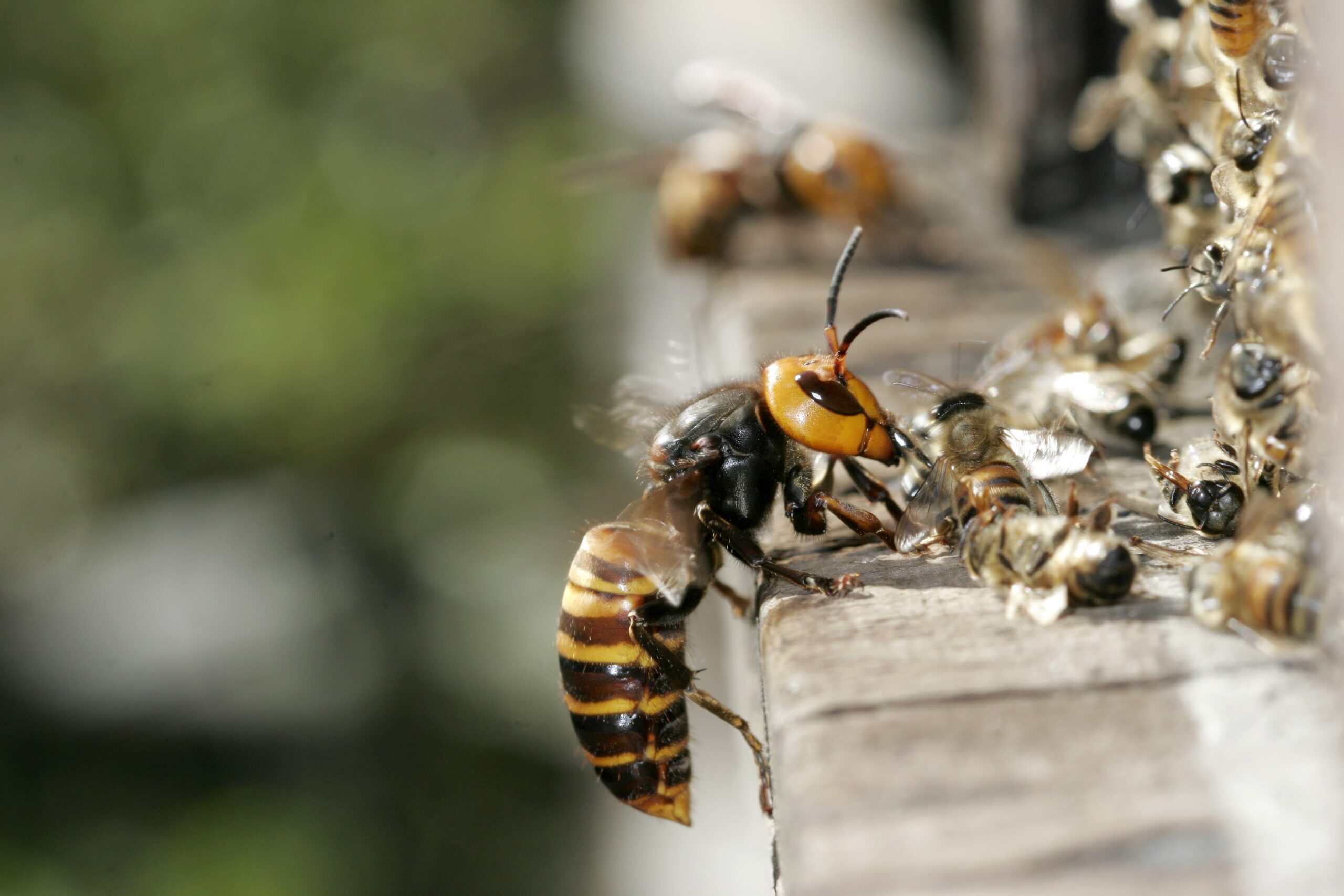A recent study found poop to be an effective weapon of defense
Giant hornets such as the “murder hornet” and others in the Vespa genus are highly aggressive and deadly beehive invaders.
When giant hornets target a beehive, they attack as a group and overwhelm the whole colony but Asian honey bees that are under attack by Vespa soror can often prevent hornet attacks by collecting and smearing animal feces to their doorways.
This poop defense is very smart for honey bees, which typically rely exclusively on plants for everything they need to survive, said Heather Mattila, an associate professor in the Department of Biological Sciences at Wellesley College in Wellesley, Massachusetts, and lead author of a new study on this unusual bee behavior.
“This dung defense is pretty sophisticated; it takes multiple workers to execute it”, Mattila said.
Asian honey bees, which are about 0.4 inches long, are smaller than giant hornets because Vespa soror workers measure up to 1.4 inches in length. Like their murder hornet cousins, Vespa soror hornets are also orange-and-black striped with orange heads, and they share their cousins’ bee-killing habits. Giant hornets usually hunt individual bees, but at the end of their breeding season, when the hornet brood is at its most numerous and there are lots of hungry mouths to feed, worker hornets start attacking beehives as a group, Mattila explained.
Worker hornets rub their abdomens on the bees’ hives “and on trees above the hives”, Mattila said. “The presumption is that the hornet nestmates are following a chemical trail”.
If a hornet army followed that scent to a beehive, the carnage was swift and terrible. Adult bees were slaughtered, and any survivors abandoned the hive, leaving their helpless young behind as a buffet for the hornets to bring back to their hungry hornet youngsters, Mattila said.
However, Asian honey bees have a few defenses against these giant predators: they can deter hornets by hissing at them, or by gathering in a group and threateningly waggling their abdomens. Bees can also kill a hornet collectively as a “bee ball,” attacking an invader until it suffocates or is cooked to death by the bees’ body heat. Asian honey bees are also very quick fliers which help them evade capture by the slower hornets, Mattila said.

Nevertheless, now scientists have discovered one more defense: animal poop.
According to the study, poop defense is very effective. Hives with lots of fecal spotting had fewer visits from giant hornets, which seemed reluctant to bite or rub up against poop-covered entrances. Hives scattered with poop were never successfully invaded by giant hornets.
Anyway, one missing puzzle piece is the fecal ingredient that deters giant hornet attacks. It could be that the waste odor is simply very unpleasant to hornets, or that it masks the chemical scent that they use to mark the hive for their nestmates, Mattila said.
Poop, among its many sustainable uses, seems to be bound to become a biological defense weapon as well.
Source livescience.com

